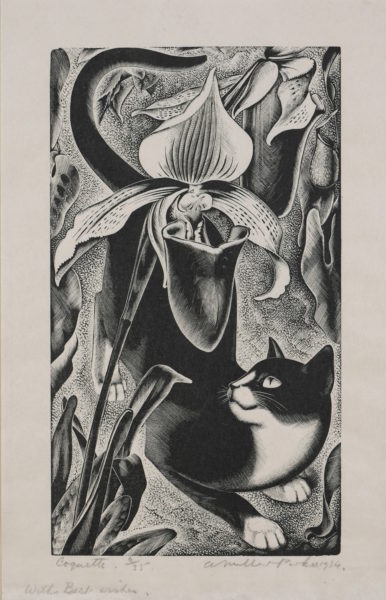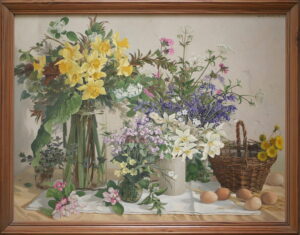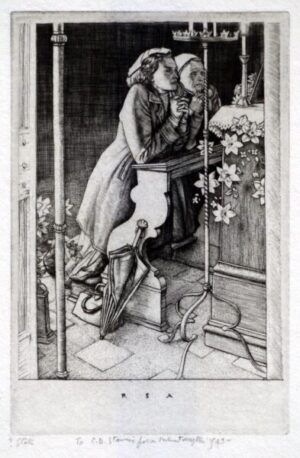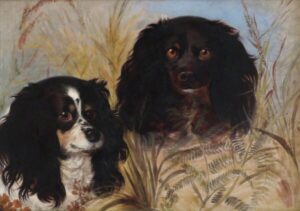Brand
Parker, Agnes Miller (1895-1980)
Born in Irvine, Ayrshire, and trained at the Glasgow School of Art, Agnes Parker's work is personal and memorable, while her technique is unusally simple, comprising the basic line and the dot typical of copper engravings. Although the majority of her woodcuts were for books, particularly 'The Private Press', there are in existence some prints standing as autonomous works of art, she also engraved some colour blocks.
Agnes studied at the Glasgow School of Art from 1911 to 1917, and joined the staff of the School for a short period. she married fellow artist William McCance in 1918 and thereafter passed most of her career in London and southern Britain. In 1955 she moved to Glasgow. She then lived at Lamlash on the Isle of Arran. Parker's early paintings, as well as those of her husband, reflect the short-lived group of artists known as Vorticists, active in London in the 1920s. The main body of her work consists of wood engravings for book illustrations. She illustrated The Fables of Aesop (1931), Through the Woods by H. E. Bates (1936), The Open Air by Richard Jefferies (edited by Samuel J. Looker, 1949) and her most acclaimed work, Elegy Written in a Country Churchyard by Thomas Gray (1938), titles for the Limited Editions Club of New York and editions of the works of Shakespeare and Thomas Hardy. She died in 1980 at Greenock.



